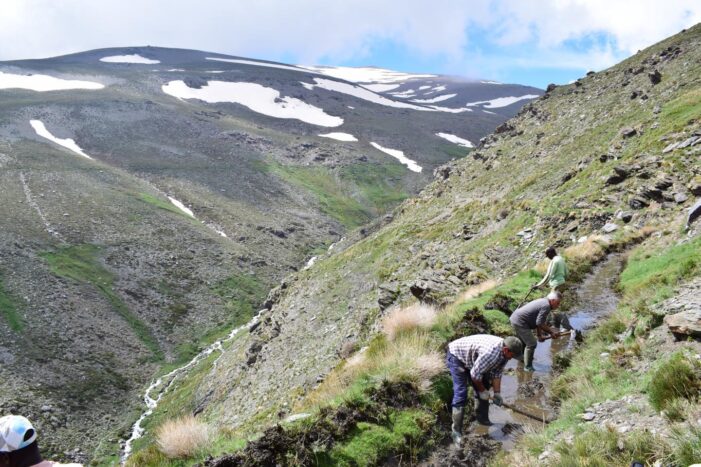For those who often say my Grandma used to say — will have a real challenge chronicling them in right and scientific format now. Very often, these proverbs for generations handed over precautions owing to climate change, indicate signs when it rains on an unusual day.
Spanish researchers from the Institut de Ciència i Tecnologia Ambientals of the Universitat Autònoma de Barcelona (ICTA-UAB), for one, have embarked upon such novel study to study proverbs related to environmental issues traditionally used by the local population in rural areas, which are currently considered imprecise and unreliable due to climate change impact.
The study, published in the journal Regional Environmental Change, studied the trend in Sierra Nevada (Granada, Southern Spain), which is unique since it’s in high mountainous regions with vulnerable ecosystem to climate change, besides being a historical place where local knowledge dominated for long in water management and agriculture.
Weather forecast through proverbs
Traditionally, weather forecasting was linked to weather, says María Garteizgogeascoa, who led the study. “I was particularly impressed by the numerous indicators (clouds, wind patterns, animal behavir) that, still nowadays, people in the area use for weather forecasting,” she said and added that some of these local sayings here are perceptibly changing in their meaning.
“I no longer pay attention to water signals because they are no longer credible” or
“In the past, cattle used to announce the rain; but now they only know when it rains after they get wet, as rain now is unpredictable” — are some of the statements made by the inhabitants of Sierra Nevada who participated in the study.
The study further explored information in local proverbs to study the impact of climate change on environment such as precipitation, snow cover and flowering periods.
For example, the proverb “por Todos los Santos la nieve en los altos, por San Andrés la nieve en los pies” indicates the arrival and abundance of snow cover. So, the proverb says at the beginning of November (Todos los Santos is celebrated on November 1st) snow can be found on the peaks of the mountains, and by the end of the month (November 30th) it normally reaches lower altitudes. But participants stated that the proverb barely reflects the current situation, as snow arrives much later now later and often scarce. Even the scientific data and literature show delayed snow periods now.

Another proverb “Septiembre o lleva los puentes o seca las fuentes” describes rain variability in September as it might downpour a lot (the bridges are washed away) or barely rains (the fountains dry up). Participants agreed that the proverb is no longer accurate as there is hardly any rain in the month of September now. Scientific data corroborates the fact.
The study found 19 of the 30 proverbs examined turned out to be irrelevant now due to climate change. Other proverbs could not be established for their scientific validation. For instance, “Cuando vienen los vilanos es conclusion del verano” talks about the flowering period (end of August to beginning of September) of the cardus flower that produces thistledown fluffy seeds that are transported by the wind. This proverb was considered not accurate now due to change in flowering periods.
Encrypted local knowledge
“This work shows that, despite some limitations, these traditional ways of encrypted local knowledge could be a useful source to do so and a window of opportunity to engage with local communities. During my work in the field, proverbs proved to be a useful tool to engage participants in discussions about climate change issues”, says María Garteizgogeascoa.
According to another team member and researcher Victoria Reyes-García, “In the absence of meteorological data from the past, traditional knowledge collected in proverbs and other forms of popular knowledge can be an alternative source of information to understand the impacts of climate change.”
The study reveals that older people thought that the proverbs they used in the past to guide their decisions are not reliable anymore. The study documents literature and impact of climate change through a Global Change Observatory established in the area in 2007.

